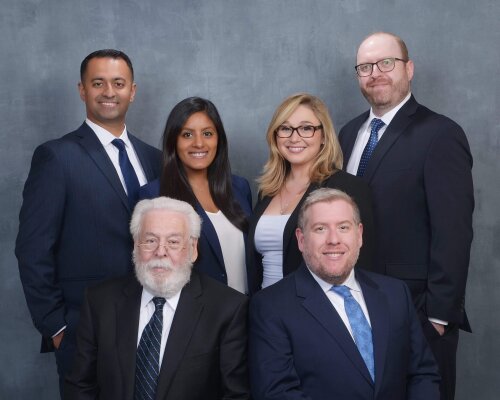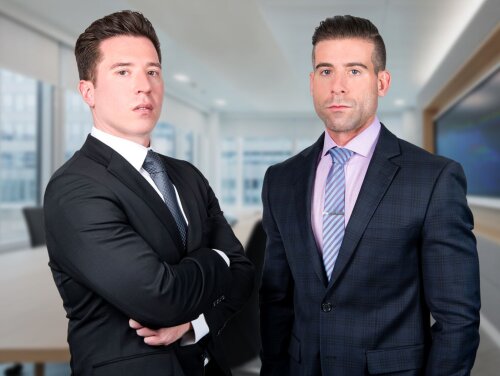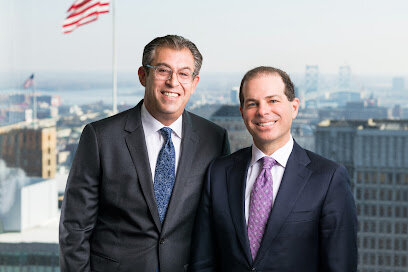Best Dangerous Product Lawyers in Philadelphia
Share your needs with us, get contacted by law firms.
Free. Takes 2 min.
List of the best lawyers in Philadelphia, United States
About Dangerous Product Law in Philadelphia, United States
Product liability law covers harms caused by defective or dangerous products - for example defective household appliances, unsafe toys, faulty medical devices, contaminated food, or dangerous automotive parts. In Philadelphia the law that governs these cases is largely state law - Pennsylvania tort law and the Uniform Commercial Code for warranties - supplemented by federal safety standards and federal courts where applicable. Pennsylvania courts recognize claims based on strict liability, negligence, and breach of warranty. Litigation often involves multiple parties - manufacturers, designers, component suppliers, distributors, importers, and retailers.
Why You May Need a Lawyer
Dangerous-product cases can be legally and technically complex. You may need a lawyer if you were injured or suffered property loss because of a defective product and any of the following apply:
- The injury required medical treatment, hospitalization, or ongoing care.
- Multiple parties could be responsible, or the manufacturer is out of state or overseas.
- The manufacturer denies responsibility or offers a low settlement.
- The case requires expert testimony about design, manufacturing, or warnings.
- You are facing complicated insurance defenses, comparative-fault claims, or special procedural rules and deadlines.
Local Laws Overview
Key legal principles and local considerations in Philadelphia include:
- Causes of action: Pennsylvania allows product liability claims under strict liability, negligence, and breach of warranty theories. Strict liability focuses on whether the product was defective and unreasonably dangerous, not on whether the defendant was careless.
- Types of defects: Design defects, manufacturing defects, and failures to warn or instruct are the most common categories.
- Burden of proof: The injured person generally must prove that the product was defective, that the defect caused the injury, and that damages resulted.
- Comparative negligence: Pennsylvania applies a comparative-negligence rule. If a plaintiff is partly at fault, the award may be reduced in proportion to fault, and recovery can be barred if the plaintiff bears a certain percentage of fault.
- Statutes of limitation and special rules: Time limits apply to file a lawsuit. For personal injury claims the limitations period can be short and missing it may prevent recovery. Claims against government bodies, or involving recalls and warranties, can trigger special notice requirements and different deadlines.
- Venue and courts: Product liability cases that stay in state court are generally filed in the Court of Common Pleas in Philadelphia County when the incident or parties are local. Cases can be filed in federal court when federal law applies or when diversity jurisdiction and amount-in-controversy requirements are met.
Frequently Asked Questions
What counts as a dangerous or defective product?
A dangerous or defective product is one that is unreasonably dangerous when used as intended or in a reasonably foreseeable way. Defects can be in design, in the manufacturing process, or in the warnings and instructions. A product that meets safety standards can still be defective if it causes an unexpected harm.
Who can I sue if I was hurt by a product?
Potential defendants include the manufacturer, designer, component parts suppliers, importer, distributor, and the retailer that sold the product. Liability can depend on each party’s role in bringing the product to market and their control over the product’s safety.
How long do I have to file a claim in Pennsylvania?
Statutes of limitation set deadlines for filing claims. For personal injury caused by a defective product the limitations period can be relatively short. There are also special notice and shorter deadlines for claims against government entities. Because deadlines vary with claim type and circumstances, consult an attorney promptly to preserve your rights.
Do I need to keep the product that injured me?
Yes. Preserving the product, its packaging, receipts, and any maintenance records is critical. Do not throw away, alter, or repair the product unless a lawyer advises otherwise. Courts can impose sanctions if evidence is destroyed or altered.
What kinds of damages can I recover?
You may be able to recover compensatory damages such as medical expenses, lost wages, future medical costs, pain and suffering, and property damage. In some cases where the defendant’s conduct was willful or grossly negligent, punitive damages may be available to punish egregious misconduct.
Will I need expert witnesses?
Most product liability cases rely on experts to explain how the product failed, whether it should have been designed differently, or whether warnings were adequate. Experts in engineering, manufacturing, biomechanics, or medicine are commonly used and are often essential to proving causation and defect.
What if I misused the product?
If the misuse was unforeseeable or extreme, it can reduce or bar recovery. If the misuse was reasonably foreseeable - for example common alternative uses - the manufacturer may still be liable if it failed to warn or design for that use. Comparative fault principles can also reduce recovery if you share blame.
Can government recalls or safety notices affect my claim?
Recalls and safety notices can be strong evidence that a product was dangerous and that a manufacturer knew about a problem. However, not all defects lead to recalls, and a recall is not required to bring a successful claim. Keep records of any recall notices and communications from the manufacturer.
Will my case go to trial or settle?
Many product liability cases settle before trial, particularly when liability is clear and injuries are significant. Whether a case settles depends on the strength of evidence, the willingness of parties to negotiate, insurance policy limits, and strategic choices. Be prepared for both settlement negotiations and possible trial.
If the product came from another country can I still sue?
Yes, but cross-border cases can be more complex. You may still be able to sue a domestic importer, distributor, or retailer. Suing a foreign manufacturer can involve jurisdictional and service-of-process challenges. Your attorney can evaluate the best defendants and forum for recovery.
Additional Resources
Philadelphia Court of Common Pleas - Civil Division for filing civil actions and local court procedures.
Pennsylvania Office of Attorney General - Bureau of Consumer Protection for complaints about unfair or deceptive practices and consumer protection enforcement.
Consumer Product Safety Commission for reports of dangerous consumer products and recall information.
Food and Drug Administration for medical device and drug safety reporting and recalls.
National Highway Traffic Safety Administration for vehicle and auto part recalls and safety standards.
Philadelphia Bar Association - Lawyer Referral Service for finding experienced local product liability attorneys.
Pennsylvania Association for Justice or Pennsylvania Trial Lawyers associations for broader information about civil justice and attorney directories.
Local legal aid organizations and law school clinics for low-cost or pro bono resources in certain circumstances.
Next Steps
If you or a loved one was harmed by a potentially dangerous product, take these practical steps immediately:
- Seek medical care and follow all medical advice. Document all treatment and keep medical bills and records.
- Preserve the product and packaging, and take clear photographs of the product, the place where the incident happened, injuries, and any identifying labels or serial numbers.
- Write down what happened while your memory is fresh - dates, times, who witnessed the incident, and any statements made by sellers or manufacturers.
- Save purchase records, warranty information, maintenance logs, and any communication with the seller or manufacturer.
- Report safety problems to the Consumer Product Safety Commission or the relevant federal agency for the product type, and consider filing a complaint with the Pennsylvania Attorney General’s consumer protection office.
- Contact a Philadelphia product liability attorney for a free or low-cost consultation to evaluate your case, preserve evidence, and explain deadlines, possible defendants, and likely costs. Most product liability lawyers handle cases on contingency, meaning fees are paid only if you recover.
Acting quickly helps preserve evidence and protects your legal rights. An experienced attorney can guide you through the technical and procedural steps needed to pursue compensation and hold responsible parties accountable.
Lawzana helps you find the best lawyers and law firms in Philadelphia through a curated and pre-screened list of qualified legal professionals. Our platform offers rankings and detailed profiles of attorneys and law firms, allowing you to compare based on practice areas, including Dangerous Product, experience, and client feedback.
Each profile includes a description of the firm's areas of practice, client reviews, team members and partners, year of establishment, spoken languages, office locations, contact information, social media presence, and any published articles or resources. Most firms on our platform speak English and are experienced in both local and international legal matters.
Get a quote from top-rated law firms in Philadelphia, United States — quickly, securely, and without unnecessary hassle.
Disclaimer:
The information provided on this page is for general informational purposes only and does not constitute legal advice. While we strive to ensure the accuracy and relevance of the content, legal information may change over time, and interpretations of the law can vary. You should always consult with a qualified legal professional for advice specific to your situation.
We disclaim all liability for actions taken or not taken based on the content of this page. If you believe any information is incorrect or outdated, please contact us, and we will review and update it where appropriate.












